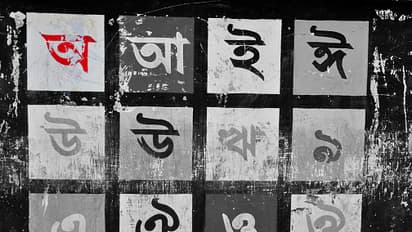Cabinet approves classical language status to five languages, including Marathi, Bengali and Assamese

Synopsis
In a significant decision aimed at promoting and preserving India's linguistic heritage, the Union Cabinet has approved the conferment of classical language status to five languages: Marathi, Pali, Prakrit, Assamese, and Bengali.
In a significant decision aimed at promoting and preserving India's linguistic heritage, the Union Cabinet, chaired by Prime Minister Narendra Modi, approved the conferral of classical language status to Marathi, Pali, Prakrit, Assamese, and Bengali.
"This is a historical decision and this decision goes very well with Prime Minister Narendra Modi and the NDA government's philosophy of taking ride in our culture, taking pride in our heritage and taking pride in all the Indian languages and the rich heritage that we have," Information and Broadcasting Minister Ashwini Vaishnaw said at a cabinet briefing.
The government stated that classical languages act as guardians of Bharat’s rich and ancient cultural heritage, reflecting the historical and cultural milestones of each community.
On October 12, 2004, the Government of India established a new category called "classical languages," starting with Tamil and subsequently conferring classical language status to Sanskrit, Telugu, Kannada, Malayalam, and Odia.
Additionally, a proposal from the Maharashtra government was submitted to the ministry in 2013, requesting classical language status for Marathi. This proposal was forwarded to the Linguistics Experts Committee (LEC), which subsequently recommended Marathi for classical language status.
The assembly elections in Maharashtra are set for later this year, making the issue of classical language status a significant poll topic in the state.
During inter-ministerial consultations in 2017 regarding the draft note for cabinet approval to confer classical status on the Marathi language, the Ministry of Home Affairs (MHA) recommended revising the criteria to make them more stringent. The Prime Minister's Office (PMO) suggested that the ministry should assess how many other languages might qualify for this status.
In the interim, proposals were also received from Bihar, Assam, and West Bengal to confer classical language status on Pali, Prakrit, Assamese, and Bengali.
As a result, the Linguistics Experts Committee (LEC), operating under the Sahitya Akademi, convened on July 25, 2024, and unanimously revised the eligibility criteria. The Sahitya Akademi has been designated as the nodal agency for the LEC.
The government stated that designating languages as Classical Languages will create substantial employment opportunities, particularly in academic and research sectors.
Furthermore, it noted that the preservation, documentation, and digitization of ancient texts in these languages will lead to job creation in archiving, translation, publishing, and digital media.
The primary states involved include Maharashtra (Marathi), Bihar, Uttar Pradesh, and Madhya Pradesh (Pali and Prakrit), West Bengal (Bengali), and Assam (Assamese). The broader cultural and academic impact of this initiative is expected to extend both nationally and internationally.
Stay updated with the Breaking News Today and Latest News from across India and around the world. Get real-time updates, in-depth analysis, and comprehensive coverage of India News, World News, Indian Defence News, Kerala News, and Karnataka News. From politics to current affairs, follow every major story as it unfolds. Get real-time updates from IMD on major cities weather forecasts, including Rain alerts, Cyclone warnings, and temperature trends. Download the Asianet News Official App from the Android Play Store and iPhone App Store for accurate and timely news updates anytime, anywhere.